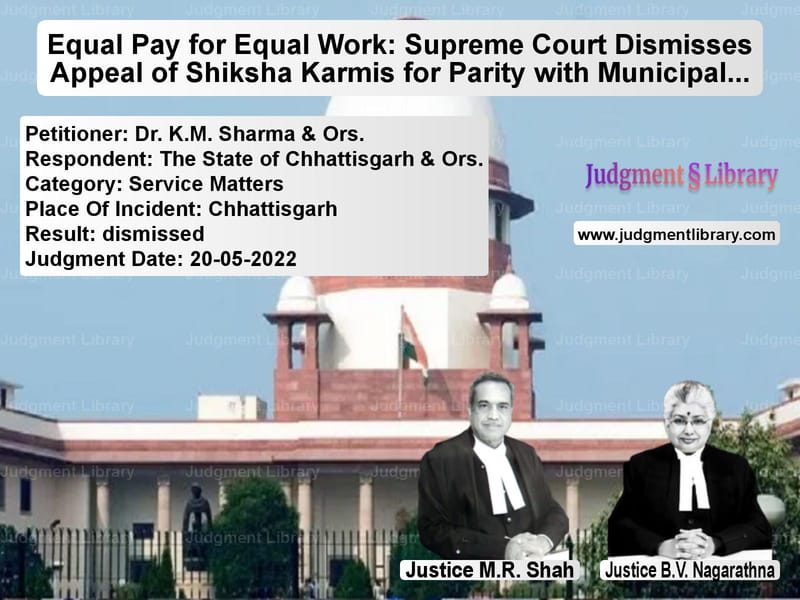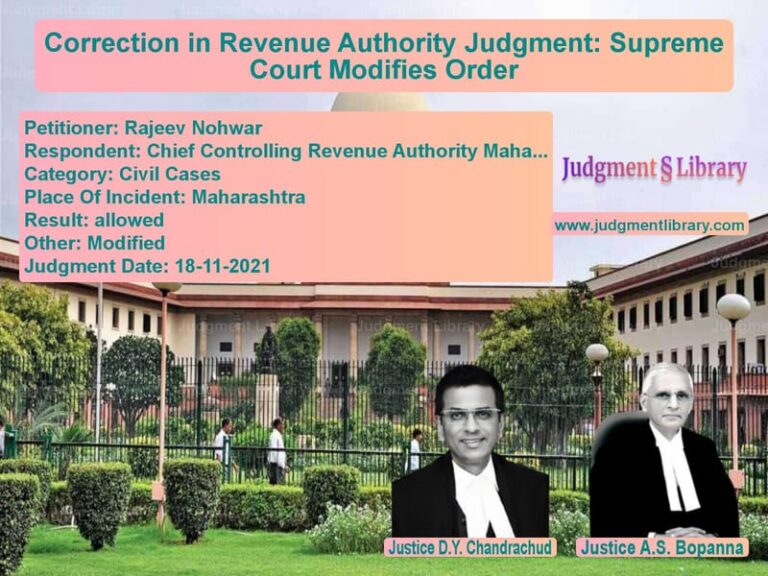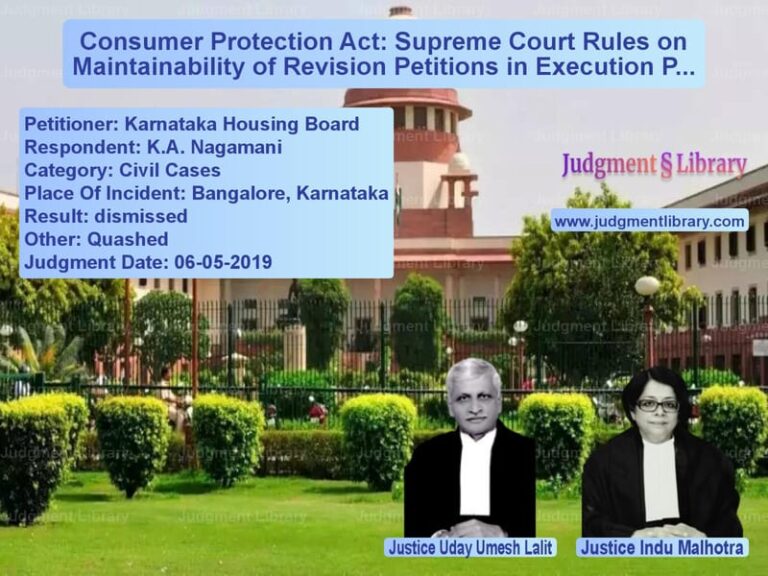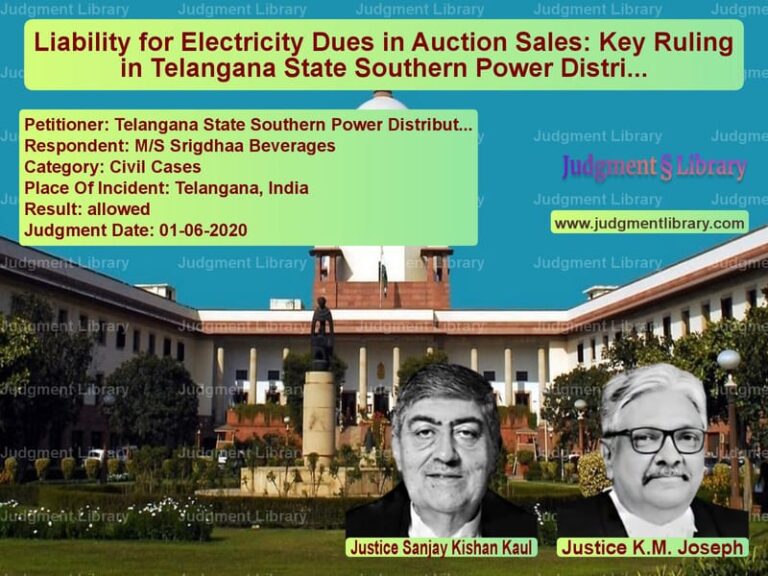Equal Pay for Equal Work: Supreme Court Dismisses Appeal of Shiksha Karmis for Parity with Municipal Teachers
The Supreme Court of India recently delivered a crucial judgment in Dr. K.M. Sharma & Ors. vs. The State of Chhattisgarh & Ors., addressing the demand of Shiksha Karmis for pay parity with municipal teachers. The case revolved around whether teachers appointed under different rules, with distinct recruitment processes and service conditions, could claim equal pay. The Supreme Court upheld the High Court’s decision, ruling that Shiksha Karmis are not entitled to the same pay scale as municipal teachers.
Background of the Case
The appellants, employed as Shiksha Karmis in Chhattisgarh, were appointed under the Chhattisgarh Municipalities Shiksha Karmis (Recruitment and Conditions of Service) Rules, 1998. They contended that their pay should be on par with teachers employed under the Municipal Employees (Recruitment and Conditions of Service) Rules, 1968. The appellants filed a writ petition before the High Court, which was dismissed. A division bench of the High Court also upheld the dismissal, leading to an appeal before the Supreme Court.
Arguments of the Appellants (Shiksha Karmis)
- The Shiksha Karmis performed the same duties as municipal teachers, including teaching the same classes and syllabus under the same education board.
- Under Rule 7 of the Shiksha Karmis Rules, 1998, after completing the probation period, they were entitled to the “regular pay-scale” of municipal teachers.
- Municipal teachers received benefits such as House Rent Allowance (HRA), Dearness Allowance (DA), pension, and promotion opportunities, while Shiksha Karmis were denied these benefits.
- Denying them equal pay for equal work violated Article 14 of the Constitution of India.
- Rule 11 of the Shiksha Karmis Rules, 1998, states that service conditions shall be the same as those applicable to municipal employees.
Arguments of the Respondents (State of Chhattisgarh)
- Shiksha Karmis and municipal teachers were governed by different rules – the former under the 1998 rules and the latter under the 1968 rules.
- The pay scales of Shiksha Karmis were explicitly defined in Schedule I of the Shiksha Karmis Rules, 1998.
- Rule 7 did not imply automatic entitlement to municipal teacher pay scales upon completing probation.
- Rule 11 only covered general service conditions such as leave, age of superannuation, and disciplinary procedures, not pay scales.
- Since the recruitment processes and service conditions were different, the principle of equal pay for equal work did not apply.
Supreme Court’s Observations
The Supreme Court thoroughly examined the provisions of the Shiksha Karmis Rules, 1998, and the Municipal Employees Rules, 1968. It made the following key observations:
- Rule 7 of the Shiksha Karmis Rules, 1998, only provided for confirmation in service upon completion of the probation period; it did not grant municipal teacher pay scales.
- The pay scales for Shiksha Karmis were explicitly mentioned in Rule 4 of the 1998 Rules, making them distinct from those applicable to municipal teachers.
- Rule 11 did not support the appellants’ claim, as it only related to general service conditions and not pay scales.
- The principle of equal pay for equal work does not apply where recruitment processes, service rules, and methods of selection are different.
The Court emphasized:
“Merely because the nature of work is similar does not mean that pay scales must be identical, especially when recruitment is governed by separate statutory rules.”
Judgment and Directions
- The Supreme Court dismissed the appeal and upheld the High Court’s decision.
- It ruled that Shiksha Karmis were not entitled to the same pay scale as municipal teachers.
- The Court found no merit in the claim that Rule 7 or Rule 11 of the Shiksha Karmis Rules, 1998, supported the appellants’ demand.
Key Takeaways from the Judgment
- The ruling clarifies that different recruitment rules and service conditions justify different pay structures.
- The principle of equal pay for equal work does not apply in cases where employees are governed by separate service rules.
- Government employees cannot claim parity in pay scales unless they satisfy the same recruitment and service criteria.
- The decision reinforces the importance of statutory rules in determining pay structures for government employees.
Conclusion
The Supreme Court’s decision in Dr. K.M. Sharma & Ors. vs. The State of Chhattisgarh & Ors. affirms the distinction between Shiksha Karmis and municipal teachers. By ruling against pay parity, the judgment upholds the principle that employees governed by different statutory frameworks cannot demand identical pay scales solely based on job similarity. The ruling provides clarity on the application of the “equal pay for equal work” doctrine in government employment.
Petitioner Name: Dr. K.M. Sharma & Ors..Respondent Name: The State of Chhattisgarh & Ors..Judgment By: Justice M.R. Shah, Justice B.V. Nagarathna.Place Of Incident: Chhattisgarh.Judgment Date: 20-05-2022.
Don’t miss out on the full details! Download the complete judgment in PDF format below and gain valuable insights instantly!
Download Judgment: dr.-k.m.-sharma-&-or-vs-the-state-of-chhatti-supreme-court-of-india-judgment-dated-20-05-2022.pdf
Directly Download Judgment: Directly download this Judgment
See all petitions in Employment Disputes
See all petitions in Public Sector Employees
See all petitions in Promotion Cases
See all petitions in Judgment by Mukeshkumar Rasikbhai Shah
See all petitions in Judgment by B.V. Nagarathna
See all petitions in dismissed
See all petitions in supreme court of India judgments May 2022
See all petitions in 2022 judgments
See all posts in Service Matters Category
See all allowed petitions in Service Matters Category
See all Dismissed petitions in Service Matters Category
See all partially allowed petitions in Service Matters Category







